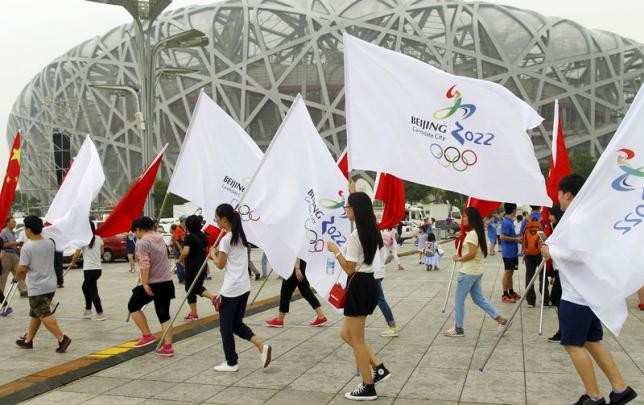Beijing became the first city to be given the rights to host both the summer and winter edition of the Olympic Games, after it won the bid for the 2022 Winter Olympics on Friday.
The International Olympic Committee (IOC) chose the Chinese capital, along with co-bidder Zhangjiakou, over the lone competitor, Almaty of Kazakhstan.
Eighty-five IOC members participated in the voting process, which was held at a convention center in downtown Kuala Lumpur. The decision, however, earned the ire of some human rights activists.
For them, the IOC decision came despite their concerns about the city's distant mountains and lack of snow.
The voting was held twice, through an electronic and a manual system. Voting by paper was done after it was found out that the electronic system malfunctioned.
The Chinese bidders won, gathering 44 votes. In a close fight, Almaty earned 40 votes, while one IOC member decided to abstain.
In a statement, the Beijing Bid Committee remarked that akin to the 2008 Summer Games, "the Olympic Family has put its faith in [the city] again to deliver the athlete-centered, sustainable and economical Games [it has] promised."
"This will be a memorable event at the foot of the Great Wall for the whole Olympic Family, the athletes and the spectators that will further enhance the tremendous potential to grow winter sports in our country, in Asia and around the world," the statement added.
The Beijing bid delegates assured the IOC that its choice will be justified, as the city will prove, once again, its capacity to host a huge and much-anticipated sports event.
Meanwhile, delegates from Almaty appealed before the IOC, stating that smaller developing countries should equally be given the opportunity to host globally popular sporting activities.



























